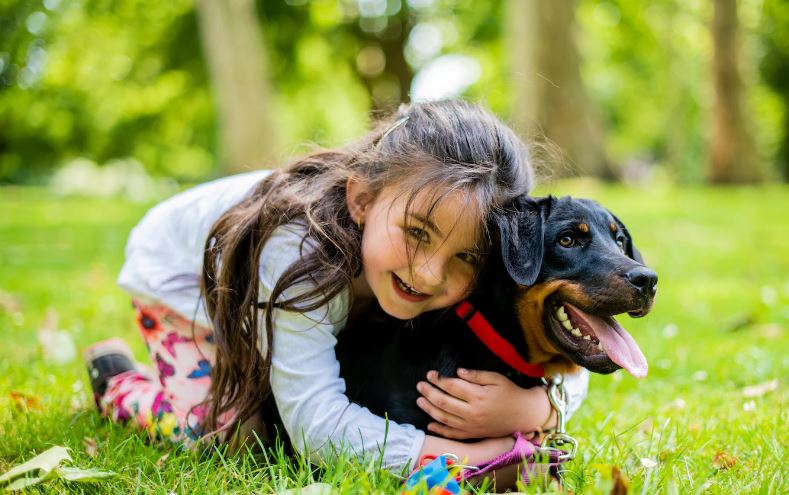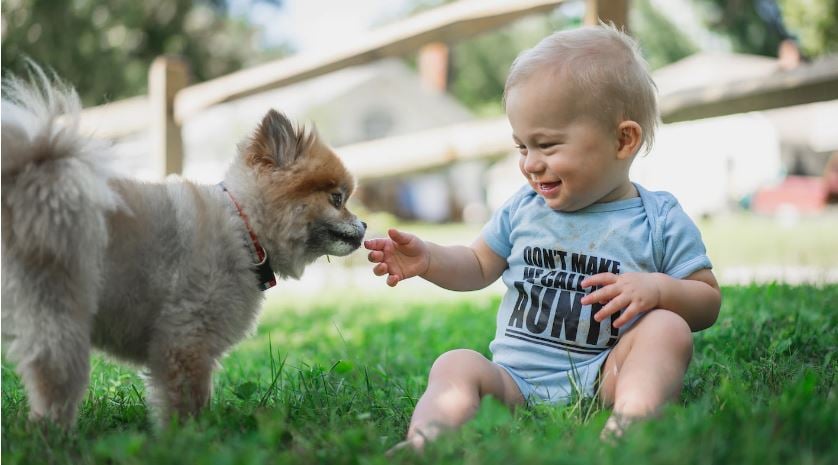The Psychological Benefits of Growing Up with a Dog
From the moment I was born, I was welcomed by a furry friend, Sammy, our family’s loyal Golden Retriever. Growing up with Sammy was not just about having a pet; it was about having a confidant, a playmate, and a non-judgmental friend. Over the years, I’ve realized that my early years spent with Sammy brought me countless psychological benefits that still resonate in my adult life. This article delves into the profound effects of growing up with a dog and how they can shape one’s personality, values, and overall mental well-being.
Unconditional Love and Attachment
Dogs are known for their undying loyalty and unconditional love. Growing up with such a companion provides a child with a sense of security and emotional stability. The bond that forms between a child and their dog is unique and genuine. This kind of bond is invaluable, teaching children early on about the meaning of true friendship and unwavering affection.
Responsibility and Discipline
Having a dog is not just about fun and games. It involves responsibilities like feeding, grooming, and regular vet visits. An additional responsibility for many dog owners today is understanding their pet’s lineage through a dog ancestry test. This test provides insight into a dog’s breed, potential health issues, and more, further deepening the bond between owner and pet. As a child, taking care of a pet teaches valuable life skills such as responsibility and discipline. It instills a sense of duty and the understanding that the well-being of another living creature partly depends on them. This early introduction to accountability can shape a child’s character and their approach to responsibilities in later life.
Coping with Loss and Grief
Life is a mosaic of joys and sorrows, and sadly, the joy of having a pet often comes with the eventual heartbreak of loss. When a child loses their furry friend, it is often their first encounter with profound grief. While undeniably painful, it also becomes an essential lesson in the realities of life and death. It presents an opportunity for families to come together, to grieve, remember, and heal. This process, though challenging, equips a child with emotional resilience and an understanding of the cyclical nature of life.
Empathy and Compassion
Dogs are sentient beings with emotions, needs, and desires. Growing up with a dog teaches children to recognize and respect the feelings of another living being. This exposure to another creature’s emotions cultivates empathy and compassion, vital qualities for understanding and connecting with others in later life.
Social Skills and Confidence
Dogs are natural ice-breakers. Taking your dog for a walk or to the park often leads to interactions with other dog owners or dog enthusiasts. For children, these interactions provide an opportunity to hone their social skills. Engaging in conversations, learning to approach others, or simply sharing stories about their furry friend can significantly boost a child’s confidence and interpersonal skills.
Physical Health and Active Lifestyle
While the primary focus of this article is on psychological benefits, it’s hard to overlook the physical health advantages that come with growing up with a dog. Dogs are active creatures that require regular exercise. This means that children with dogs are more likely to engage in outdoor activities, promoting an active and healthy lifestyle. An active lifestyle not only has physical benefits but also aids mental well-being by releasing endorphins, the body’s natural mood lifters.
Stress Reduction and Emotional Support
Studies have shown that spending time with dogs can lower cortisol levels, a stress hormone, in humans. For children, a dog can be a source of comfort during stressful times. Whether it’s the pressure of exams, familial issues, or just a bad day, a dog’s presence can offer solace. Their non-judgmental nature and boundless affection can provide emotional support that is both genuine and comforting.
Structure and Routine
Dogs thrive on routine. They have regular feeding times, walking schedules, and bedtime. For a child, this routine provides structure. It gives them a sense of what’s coming next and what’s expected of them, teaching them the importance of time management and planning.
Conclusion
Growing up with a dog is a journey filled with laughter, love, lessons, and at times, tears. The psychological benefits of this unique relationship go beyond mere companionship. Dogs shape our character, teach us about life, and provide a kind of emotional support that’s hard to match. As an adult, I often find myself reminiscing about the days spent with Sammy. The memories are not just about a pet but about a friend who played a pivotal role in making me the person I am today. To anyone contemplating getting a dog for their child or family, remember, you’re not just adding a pet to your household; you’re introducing a lifelong friend and mentor.




